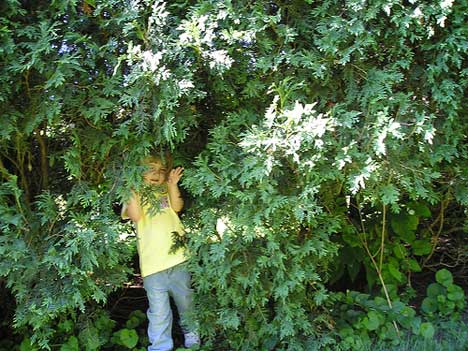
Photo by dospaz
Guest post by grandmother and former nurse Linda Sones who sells organic cotton baby and children’s clothing and accessories, and natural, organic baby toiletries online at SonesUK. Her suppliers are all committed to various environmental and Fairtrade initiatives.
Modern parents are becoming increasingly concerned about the future of our planet and safeguarding it for future generations. It’s our job to help our children to tread lightly on their planet.
At the beginning of their lives our babies have very few real consumer needs. They need food, clothing, warmth and a lot of love. Here are a few ideas to keep their consumer needs to a minimum throughout their growing years.
Babies
1. Try to avoid using disposable nappies if not all of the time at least some of it. Think of all those landfill sites.
2. Breastfeed if you possibly can, you have it on tap! Although I do understand that this is not possible for everyone.
3. When it’s time for solid foods make your own. Why does it all have to come out of a tin or jar? It needn’t even be that time consuming. You can freeze a little extra vegetable etc. prepared when you cooked your own meal and have several ready for use.
4. Choose organic cotton produced without toxic chemicals, it lasts longer and doesn’t irritate tender baby skins.
Children
As babies get older the best way forward is to set a good example for your kids so that they can understand about the need to conserve energy. It can be really simple.
5. Be a good example, turning lights off when not needed and ensuring taps are not left running, only boiling the amount of water you need, or choosing a shower instead of a bath.
6. From an early age explain to them why we do things in certain ways rather than meaningless nagging which from experience I know they tune out.
7. Get the children to help with recycling. How wonderfully satisfying and noisy it is posting bottles into the bottle bank and an opportunity to learn about colours too when we sort out which containers they go into.
8. Composting can be great fun and later if you are lucky enough to have the space they can see the benefits with their own little patch of garden.
9. Aim to buy food locally where possible and don’t get the car out for every trip unless it really is too far to walk.
10. Do you really need all those expensive chemical laden cleaning products? You could try swapping them for greener alternatives. Bicarbonate of soda for example is great for cleaning the fridge and gets rid of odours in there as well. Distilled white vinegar has a myriad of uses check it out; I find it helpful to add to the rinsing water to get all the soap out of clothes.
11. Try not to waste food and buy only what you need. I can recommend ‘stovies’ as a way of using up vegetables and meat left over from the joint. Mix the chopped meat with some onion, leftover vegetables and mashed potato and even a little gravy if you have some of that left. Mix all together and pan fry like bubble and squeak. Delicious and kids like it too especially with the addition of some ketchup.
Implementing these simple ideas will hopefully lead to your kids in time telling you how best to conserve energy.